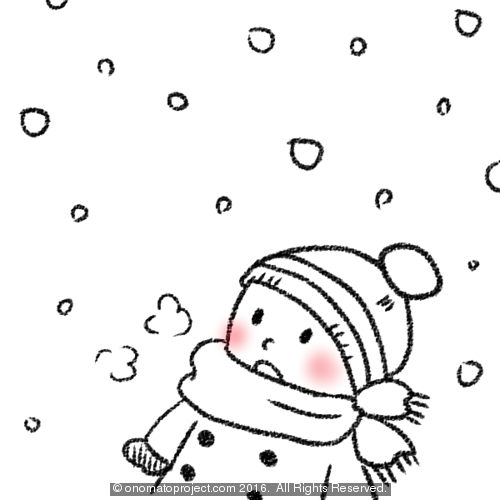Like this post? Help us by sharing it!
Andrew Robbins is the founder of the Onomato Project, a website devoted to the wonderful world of onomatopoeic and mimetic words in Japanese. Here, he introduces us to a few of his favourite seasonal terms..
Pota-pota… pota-pota…
You know, one of these days I really need to get my faucet checked out. The drain is a bit nuru-nuru though, so I should probably scour it before calling the plumber…
Anyway. I’ve been living here in Japan for around a decade now, and I think I’ve just about got my bearings. Or not. Recently, my beard’s gotten a bit bosa-bosa and I think I may have been a victim of facial-hair discrimination at airport customs. (To be fair, it only took an extra two minutes — polite and efficient as always.)
But that’s not the point. The point is ideophones. Sound symbolism. Onomatopoeia and mimetic words. Japanese has literally thousands of them, and until you get the hang of them you’re not really speaking Japanese. Scraggly beard? Bosa-bosa. Slimy surface? Nuru-nuru. Dripping water? Pota-pota… pota-pota…
Of course you can’t get by on onomatopoeia alone. You’ll need some nouns and verbs to make any sort of sense, but they’re a wonderful garnish. Not to mention that they’re fun, useful, and surprisingly intuitive. Rather than simply conveying facts, they help a speaker evoke a particular feeling in the listener, and therein lies their power.
I am by no means the last word on Japanese sound symbolism, but I do run the Onomato Project, a website dedicated to explaining the wealth of Japanese onomatopoeia and mimetic words available. I also really enjoy them and endeavor to use them as much as possible in daily conversation, so today I’d like to introduce five seasonal words to take your Japanese to the next level.
Winter
The weather has already seen new extremes this year, and despite January taking the record for the hottest month in known history, just a few weeks ago I woke up to several inches of snow piled up on my balcony. And throughout the morning, it continued to fall silently: shin-shin.
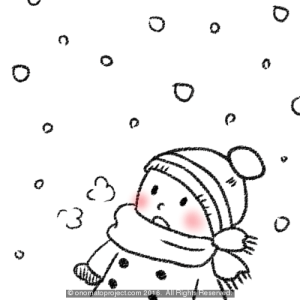
Spring
The tired mountains shrug off their white winter coats and the snow monkeys become regular monkeys. After days spent huddled under kotatsu, we finally feel the comfortable warmth of the spring sun against our skin: poka-poka.
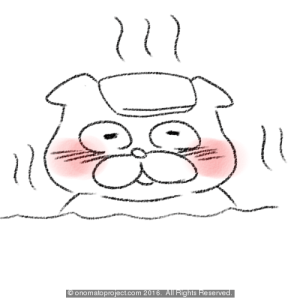
Rainy Season
Your clothes are sodden. Your pets are drenched. You towel off after a shower and it’s completely ineffective. It’s not the rain but rather the humidity. Kyoto is especially oppressive as it’s a basin, so the humidity is locked in until autumn: jime-jime.
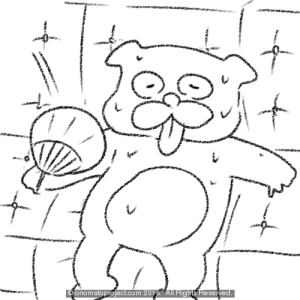
Summer
Oh, you thought rainy season was tough? Now you get all the humidity with the added bonus of the scorching summer sun! It’s perfectly normal to see people mopping up the sweat on their brows with handkerchiefs as the sun continues to glare mercilessly from above: gira-gira.
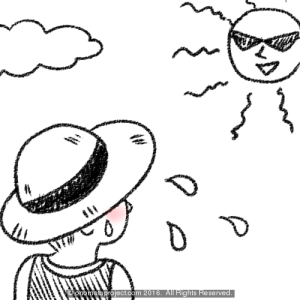
Autumn
You survived the gauntlet and are ready to go out and enjoy the colors of the autumn leaves. The verdant greens of seasons past give way to rich reds, bright yellows, and all the colors in between. But soon, they too will wither and fade, slowly fluttering away like their ephemeral beauty: hira-hira.
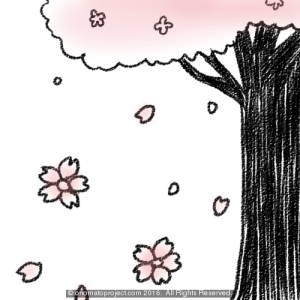
If you’re interested in the Japanese language – or if you just want to pick up a few phrases before your holiday – keep an eye out for more linguistically orientated blog posts to come. We’ve already published a list of useful phrases for parents travelling with a baby in Japan, and our First-Timer’s Japan section is packed with more useful tips.


